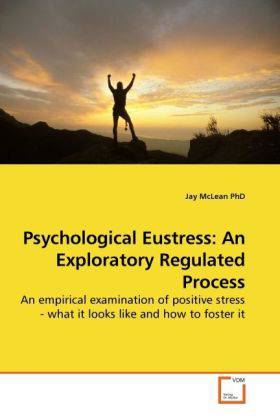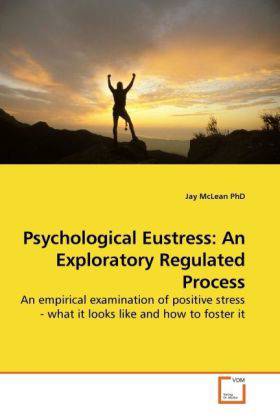
- Afhalen na 1 uur in een winkel met voorraad
- Gratis thuislevering in België vanaf € 30
- Ruim aanbod met 7 miljoen producten
- Afhalen na 1 uur in een winkel met voorraad
- Gratis thuislevering in België vanaf € 30
- Ruim aanbod met 7 miljoen producten
Zoeken
€ 58,45
+ 116 punten
Omschrijving
When we think of stress we typically put a negative spin on it. In its everyday usage stress is thought of as a negative emotional state, shaped by harm, loss, and threat. This is certainly true of distress, the bad stress, which has been profusely researched. It is well understood that psychological principles, such as appraisal, are involved in stress, not to mention that distress is regulated by coping. But there is no escaping stress. To live is to stress. Life in and of itself places numerous demands on the human response system. Based on this premise there is more to life than coping and dealing with distress; there is fun, laughter, play, learning, exploration and growth. By necessity the positive aspects of life place demands on the human response system, too. Hence the infamous eustress, the good stress, which tells a tale of exploration and mastery. There are limited empirical investigations that bring to light the psychological make-up of eustress; the current research is one of the first. So what is psychological eustress and how is it regulated or fostered? This manuscript empirically examines this question. Enjoy!
Specificaties
Betrokkenen
- Auteur(s):
- Uitgeverij:
Inhoud
- Aantal bladzijden:
- 148
- Taal:
- Engels
Eigenschappen
- Productcode (EAN):
- 9783639234992
- Verschijningsdatum:
- 28/03/2010
- Uitvoering:
- Paperback
- Formaat:
- Trade paperback (VS)
- Afmetingen:
- 152 mm x 229 mm
- Gewicht:
- 226 g

Alleen bij Standaard Boekhandel
+ 116 punten op je klantenkaart van Standaard Boekhandel
Beoordelingen
We publiceren alleen reviews die voldoen aan de voorwaarden voor reviews. Bekijk onze voorwaarden voor reviews.











